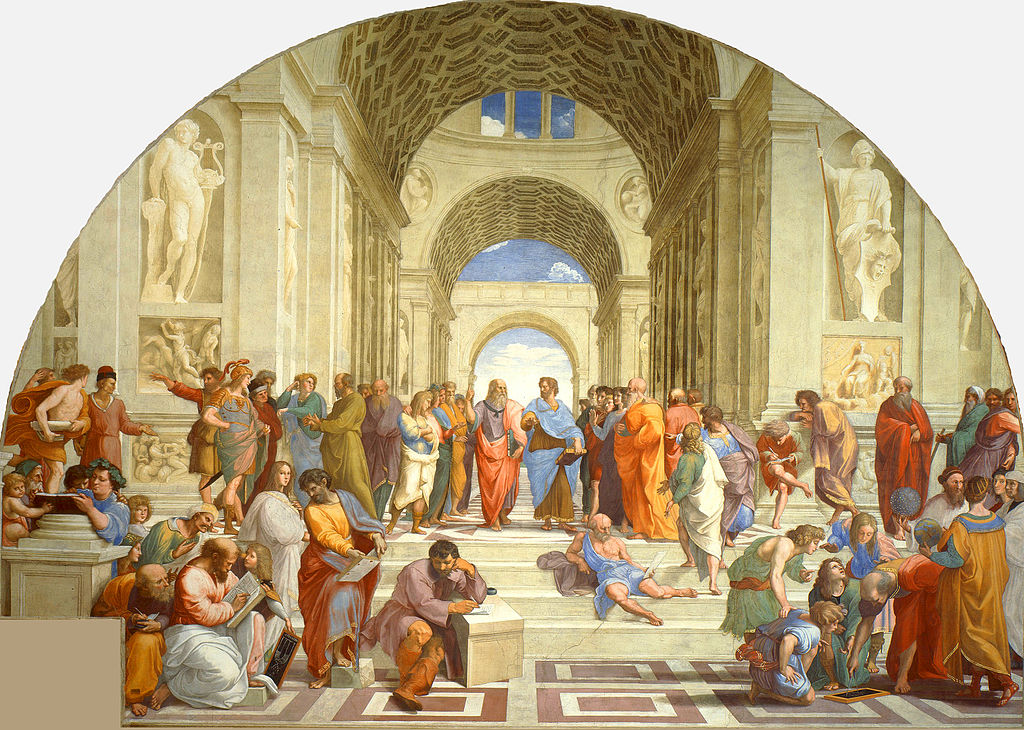
The Art of Philosophy explores the depiction of Philosophy and the Philosophers. In this context, a philosopher is someone who is a “lover of wisdom.”
A philosopher is someone who focuses on resolving existential questions about the human condition.
Famous philosophers have challenged what is thought to be common sense, and did not stop asking questions, and reexamines traditional ways of thought.
In a modern sense, a philosopher is an intellectual who has contributed in one or more branches of philosophy.
A philosopher may also be one who worked in the humanities or other sciences which have since split from philosophy proper over the centuries, such as the arts, history, economics, sociology, psychology, linguistics, anthropology, theology, and politics.
Exploring the Art of Philosophy
- “Diogenes” by John William Waterhouse
- “The Death of Socrates” by Jacques-Louis David
- The Emperor as Philosopher, Marcus Aurelius
- “Aristotle” by Jusepe de Ribera
- “Euclid” by Jusepe de Ribera
- “Plato” by Jusepe de Ribera
- “Portrait of Friedrich Nietzsche” by Edvard Munch
- Diogenes in Art
- Aristotle’s Lyceum
Exploring the Art of Philosophy
“Diogenes” by John William Waterhouse
“Diogenes” by John William Waterhouse depicts “Diogenes the Cynic” (412 – 323 BC), who was a Greek philosopher.
Diogenes was a controversial figure with a reputation for sleeping and eating wherever he chose in a highly non-traditional fashion.
Diogenes made a virtue of poverty. He begged for a living and often slept in a large ceramic jar in the marketplace, as Waterhouse has depicted him in this 1882 painting.
Waterhouse has contrasted the joyful and richly dressed women with the older man who was one of the founders of Cynic philosophy.
In front of his ceramic jar lodgings is a lamp that he carried during the day, claiming to be looking for an honest man.
He criticized Plato, disputed his interpretation of Socrates. He was also noted for having mocked Alexander the Great, both in public and to his face when he visited Corinth in 336.
Museum: Art Gallery of New South Wales
“The Death of Socrates” by Jacques-Louis David
The Death of Socrates by Jacques-Louis David depicts Socrates as the stoic older man in a white robe sitting upright on a bed.
His right hand extended over a cup, the left hand is gesturing in the air. His students and loyal followers surround him, showing emotional distress.
The young man handing him the cup looks the other way, with his face in his hand. Another young man clutches the thigh of the old man begging Socrates not to take the poison.
An elderly man sits at the end of the bed, is Plato, his most famous student, and he is shown slumped over and looking in his lap.
This famous painting depicts the execution of Socrates, as told by Plato. Socrates has been convicted of corrupting the youth of Athens and introducing strange gods and has been sentenced to die by drinking poison hemlock.
Socrates uses his death as the last lesson for his pupils and not fleeing when the opportunity arises and faces it calmly.
Museum: Metropolitan Museum of Art – MET
The Emperor as Philosopher, Marcus Aurelius
“The Emperor as Philosopher” is a bronze statue which is probably of Roman Emperor Marcus Aurelius. He was Emperor of Rome from 161 to 180 AD and was a practitioner of Stoicism.
His writings, known as “Meditations,” are a significant source of our understanding of the ancient Stoic philosophy and is one of the notable works of philosophy.
It is assumed that the majestic quality of execution and the monumental scale of this over-life-size sculpture implies that this is an imperial portrait of an Emperor.
The pose of the figure is like several Greek depictions of Philosophers. Thus, this draped statue is assumed to be the Philosopher Emperor, Marcus Aurelius. Museum: Cleveland Museum of Art
“Aristotle” by Jusepe de Ribera
Aristotle, by Jusepe de Ribera, is portrayed wearing a scholar’s skullcap and a ragged robe, as a “beggar philosopher,” a popular rhetorical device in the seventeenth century.
His asceticism was in keeping with Spanish Catholicism and is a hallmark of the saints Ribera also painted.
Aristotle is shown surrounded by a light reminiscent of Caravaggio. De Ribera’s naturalistic style makes this painting a powerful evocation of a philosopher deep in contemplation.
Aristotle is painted with deep creases in his worn face and hands. Ribera signed the picture across the papers in Aristotle’s hand, appending “español” to his name to assert his nationality. Museum: Indianapolis Museum of Art
“Euclid” by Jusepe de Ribera
Euclid by Jusepe de Ribera, depicts the “father of geometry,” emerging from the shadows behind a table. Presented as a solemn scholar displaying his well-worn book with various geometric figures and Pseudo-Greek characters.
De Ribera focused his all skills to the man’s facial details, from the unkempt beard to creases of his forehead and the folds of the lids above his dark eyes.
Depicted as a man with tattered clothes and blackened, grimy fingers to emphasize Euclid’s devotion to the intellectual, rather than material, pursuits.
The presence of mathematical diagrams in the illegible book reveals the figure’s identity as Euclid, the famous mathematician from over two thousand years ago, best known for his treatise on geometry.
Portraits of wise men and philosophers were popular in the 1600s when there was a revived interest in ancient Greek philosophy.
Rather than portraying the subject as a refined and noble figure, Ribera depicted him as an individual dedicated to his work. Museum: Getty Center
“Plato” by Jusepe de Ribera
“Plato” by Jusepe de Ribera is shown looking to the heavens and towards the light to symbolize his significant influence on Saint Augustine and as a consequence, Christianity.
Plato advocated a belief in the immortality of the soul, and several of his famous dialogues end with long speeches imagining the afterlife.
The asceticism depicted in this composition was in keeping with Spanish Catholicism and is distinctive of the saints and philosophers that Ribera painted.
Plato is portrayed with deep creases in his worn face, but with sturdy hands that hold what he treasures. Museum: Los Angeles County Museum of Art
“Portrait of Friedrich Nietzsche” by Edvard Munch
This “Portrait of Friedrich Nietzsche” by Edvard Munch was painted just six years after the philosopher’s death.
The artist and philosopher never met, but Munch was a devoted admirer of Nietzsche, and he created this famous artistic interpretation of the philosopher’s spirit and ideas.
Munch had a shared spiritual kinship with Nietzsche. Both suffered from loneliness and a fear of madness.
Edvard Munch who had read much of Nietzsche’s work invested much of his spirit in this Portrait of Friedrich Nietzsche. Museum: Thiel Gallery Blue
Aristotle’s Lyceum
Aristotle’s Lyceum was a temple dedicated to Apollo Lyceus and was best known for the Peripatetic school of philosophy founded there by Aristotle in 335 BCE.
Aristotle fled Athens in 323 BCE, but the school continued to function until the Romans destroyed it during his assault on Athens in 86 BCE.
The remains of the Lyceum were discovered in modern Athens in 1996 in a park behind the Hellenic Parliament.
The Lyceum had been used for philosophical debate before Aristotle. A number of early philosophers had spoken at the Lyceum, the most famous philosophers to teach there were Isocrates, Plato, and Socrates.
In addition to military training and educational pursuits, the Lyceum also housed Athenian Assembly meetings before the Pnyx became the official meeting place in the 5th century BCE. City: Athens
The Art of Everything
- The Art of the Kiss
- The Art of War
- The Art of Philosophy
- The Art of Love
- The Art of Madonna and Child
- The Art of Boxing
- Public Art
- The Art of Maps
- The Art of Ancient Artifacts
- The Art of Famous Artists
- The Art of the Prehistoric
- “The Fall of Icarus” in Art
- “Cupid and Psyche” in Art
- “Saint John the Baptist” in Art
- “Diana and Callisto” in Art
- “Leda and the Swan” in Art
- “Oedipus and the Sphinx” in Art
- “Achilles on Skyros” in Art
- “Cyclops Polyphemus” in Art
- “Ulysses and the Sirens” in Art
- “Diana the Huntress” in Art
- “Venus and Adonis” in Art
- “Susanna and the Elders” in Art
A Tour of the Art of Everything
-
The Art of the Kiss
- “Psyche Revived by Cupid’s Kiss” by Antonio Canova
- “The Kiss” by Auguste Rodin
- “The Kiss” by Gustav Klimt
- “The Stolen Kiss” by Jean-Honoré Fragonard
- “Eternal Springtime” by Auguste Rodin
- Ain Sakhri Lovers
- Kiss of Death, Lipstick Pistol
- Hellelil and Hildebrand, Meeting on the Turret Stairs by Frederic William Burton
- “Kiss by the Window” by Edvard Munch
- “The Kiss” by Francesco Hayez
- “Romeo and Juliet” by Ford Madox Brown
-
The Art of Philosophy
- “Diogenes” by John William Waterhouse
- “The Death of Socrates” by Jacques-Louis David
- The Emperor as Philosopher, Marcus Aurelius
- “Aristotle” by Jusepe de Ribera
- “Euclid” by Jusepe de Ribera
- “Plato” by Jusepe de Ribera
- “Portrait of Friedrich Nietzsche” by Edvard Munch
- Diogenes in Art
- Aristotle’s Lyceum
-
The Art of War
- “Washington Crossing the Delaware” by Emanuel Leutze
- “The Family of Darius before Alexander” by Paolo Veronese
- “The Third of May 1808” by Francisco Goya
- “The Capture of the Hessians at Trenton, December 26, 1776” by John Trumbull
- “The March to Valley Forge” by William B. T. Trego
- “The Massacre at Chios” by Eugène Delacroix
- “Cromwell in Battle of Naseby” by Charles Landseer
- “The Surrender of Breda” by Diego Velázquez
- “Hannibal and his Army Crossing the Alps” by J. M. W. Turner
- “Oath of the Horatii” by Jacques-Louis David
- “Dempsey and Firpo” by George Bellows
- Floreat Etona! by Elizabeth Thompson
- Scotland Forever! by Elizabeth Thompson
-
The Art of the Dance
- “Country Dance” by Pierre-Auguste Renoir
- “At the Moulin Rouge, The Dance” by Toulouse-Lautrec
- “Three Dancers at a Dance Class” by Edgar Degas
- Nataraja the Cosmic Dancer and God of Dramatic Arts
- “Dance at Le Moulin de la Galette” by Pierre-Auguste Renoir
- Dancing Girl (Mohenjo-daro) from the Indus Valley Civilization
- “Dance at Bougival” by Auguste Renoir
- “A Dance to the Music of Time” by Nicolas Poussin
- “The Little Fourteen-Year-Old Dancer” by Edgar Degas (MET)
- Dancers by Pierre Bonnard
- “Orchestra Musicians” by Edgar Degas
Quotes by Philosopher
~~~
“The laws of nature are but the mathematical thoughts of God.” – Euclid
~~~
“Handwriting is a spiritual designing, even though it appears by means of a material instrument.” – Euclid
~~~
“There is no Royal Road to Geometry.” – Euclid
~~~
“A straight line is said to have been cut in extreme and mean ratio when, as the whole line is to the greater segment, so is the greater to the lesser.” – Euclid
~~~
“A prime number is one (which is) measured by a unit alone.” – Euclid
~~~
“What has been affirmed without proof can also be denied without proof.” – Euclid
~~~
“A line is length without breadth.” – Euclid
~~~
“QED – Quod erat.” – Euclid
~~~
“In right-angled triangles, the square on the side subtending the right angle is equal to the squares on the sides containing the right angle.” – Euclid
~~~
“Better balance, less pain, and less restless leg syndrome.” – Euclid
~~~
“A ‘unit’ is that by virtue of which each of the things that exist is called one.” – Euclid
~~~
“A ‘number’ is a multiple composed of units.” – Euclid
~~~
“The roots of education are bitter, but the fruit is sweet.” – Aristotle
~~~
“Happiness depends upon ourselves.” – Aristotle
~~~
“Quality is not an act; it is a habit.” – Aristotle
~~~
“The whole is more than the sum of its parts.” – Aristotle
~~~
“It is the mark of an educated mind to be able to entertain a thought without accepting it.” – Aristotle
~~~
“Pleasure in the job puts perfection in the work.” – Aristotle
~~~
“We are what we repeatedly do. Excellence, then, is not an act, but a habit.” – Aristotle
~~~
“The end of labor is to gain leisure.” – Aristotle
~~~
“Educating the mind without educating the heart is no education at all.” – Aristotle
~~~
“An unexamined life is not worth living.” – Socrates
~~~
“Beware the barrenness of a busy life.” – Socrates
~~~
“I only wish that ordinary people had an unlimited capacity for doing harm; then they might have unlimited power for doing good.” – Socrates
~~~
“If a man is proud of his wealth, he should not be praised until it is known how he employs it.” – Socrates
~~~
“The beginning of wisdom is a definition of terms. ” – Socrates
~~~
“I know that I am intelligent because I know that I know nothing.” – Socrates
~~~
“What a lot of things there are that a man can do without.” – Socrates
~~~
“Education is the kindling of a flame, not the filling of a vessel.” – Socrates
~~~
“Know thyself.” – Socrates
~~~
“How many are the things I can do without!” – Socrates
~~~
“Where there is reverence, there is fear, but there is not reverence everywhere that there is fear because fear presumably has a wider extension than reverence.” – Socrates
~~~
“When the debate is over, slander becomes the tool of the loser.” – Socrates
~~~
“By all means marry: if you get a good wife, you’ll become happy; if you get a bad one, you’ll become a philosopher.” – Socrates
~~~
“True knowledge exists in knowing that you know nothing.” – Socrates
~~~
“To find yourself, think for yourself.” – Socrates
~~~
“I was too honest a man to be a politician and live.” – Socrates
~~~
“I cannot teach anybody anything; I can only make them think.” – Socrates
~~~
“He who is not contented with what he has, would not be contented with what he would like to have.” – Socrates
~~~
“There is only one good, knowledge, and one evil, ignorance.” – Socrates
~~~
“I cannot teach anybody anything. I can only make them think.” – Socrates
~~~
~~~
“Our prayers should be for blessings in general, for God knows best what is good for us.” – Socrates
~~~
“They are not only idle who do nothing, but they are idle also who might be better employed.” – Socrates
~~~
“The best revenge is to be unlike him who performed the injury.” – Marcus Aurelius
~~~
“Everything we hear is an opinion, not a fact. Everything we see is a perspective, not the truth.” – Marcus Aurelius
~~~
“Accept the things to which fate binds you, and love the people with whom fate brings you together, but do so with all your heart.” – Marcus Aurelius
~~~
“Very little is needed to make a happy life; it is all within yourself, in your way of thinking.” – Marcus Aurelius
~~~
“The universe is transformation: life is opinion.” – Marcus Aurelius
~~~
“You have power over your mind – not outside events. Realize this, and you will find strength.” – Marcus Aurelius
~~~
“Whatever the universal nature assigns to any man at any time is for the good of that man at that time.” – Marcus Aurelius
~~~
“The soul becomes dyed with the color of its thoughts.” – Marcus Aurelius
~~~
“Nothing happens to any man that he is not formed by nature to bear.” – Marcus Aurelius
~~~
“He who lives in harmony with himself lives in harmony with the universe.” – Marcus Aurelius
~~~
“The universe is change; our life is what our thoughts make it.” – Marcus Aurelius
~~~
“When you arise in the morning, think of what a precious privilege it is to be alive – to breathe, to think, to enjoy, to love.” – Marcus Aurelius
~~~
“Natural ability without education has more often raised a man to glory and virtue than education without natural ability.” – Marcus Aurelius
~~~
“Death smiles at us all, but all a man can do is smile back.” – Marcus Aurelius
~~~
“The art of living is more like wrestling than dancing.” – Marcus Aurelius
~~~
“The object of life is not to be on the side of the majority, but to escape finding oneself in the ranks of the insane.” – Marcus Aurelius
~~~
“If it is not right do not do it; if it is not true do not say it.” – Marcus Aurelius
~~~
“You have power over your mind – not outside events.
Realize this, and you will find strength.” – Marcus Aurelius
~~~
“One of the penalties for refusing to participate in politics is that you end up being governed by your inferiors.” – Plato
~~~
“Only the dead have seen the end of war.” – Plato
~~~
“At a touch of love, everyone becomes a poet.” – Plato
~~~
“The beginning is the most important part of the work.” – Plato
~~~
“Wise men talk because they have something to say; fools, because they have to say something.” – Plato
~~~
“Be kind; for everyone you meet is fighting a hard battle.” – Plato
~~~
“Music is a moral law. It gives soul to the universe, wings to the mind, flight to the imagination, and charm and gaiety to life and to everything.” – Plato
~~~
“Man, a being in search of meaning.” – Plato
~~~
“We can easily forgive a child who is afraid of the dark; the real tragedy of life is when men are afraid of the light.” – Plato
~~~
“Good people do not need laws to tell them to act responsibly, while bad people will find a way around the laws.” – Plato
~~~
“A good decision is based on knowledge and not on numbers.” – Plato
~~~
“Poetry is nearer to vital truth than history.” – Plato
~~~
“One of the penalties for refusing to participate in politics is that you end up being governed by your inferiors.” – Plato
~~~
~~~
“The laws of nature are but the mathematical thoughts of God.”
– Euclid
~~~
Photo Credit: Raphael [Public domain]
Popular this Week


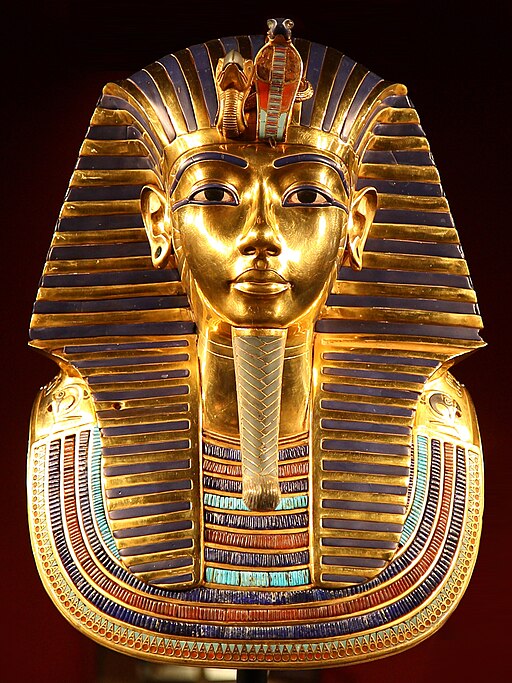



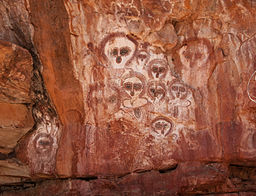
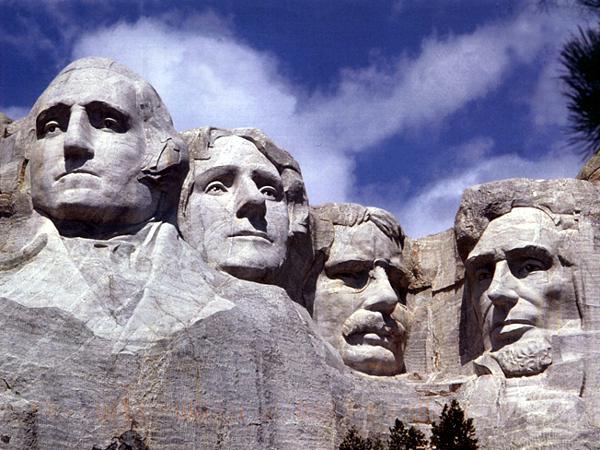
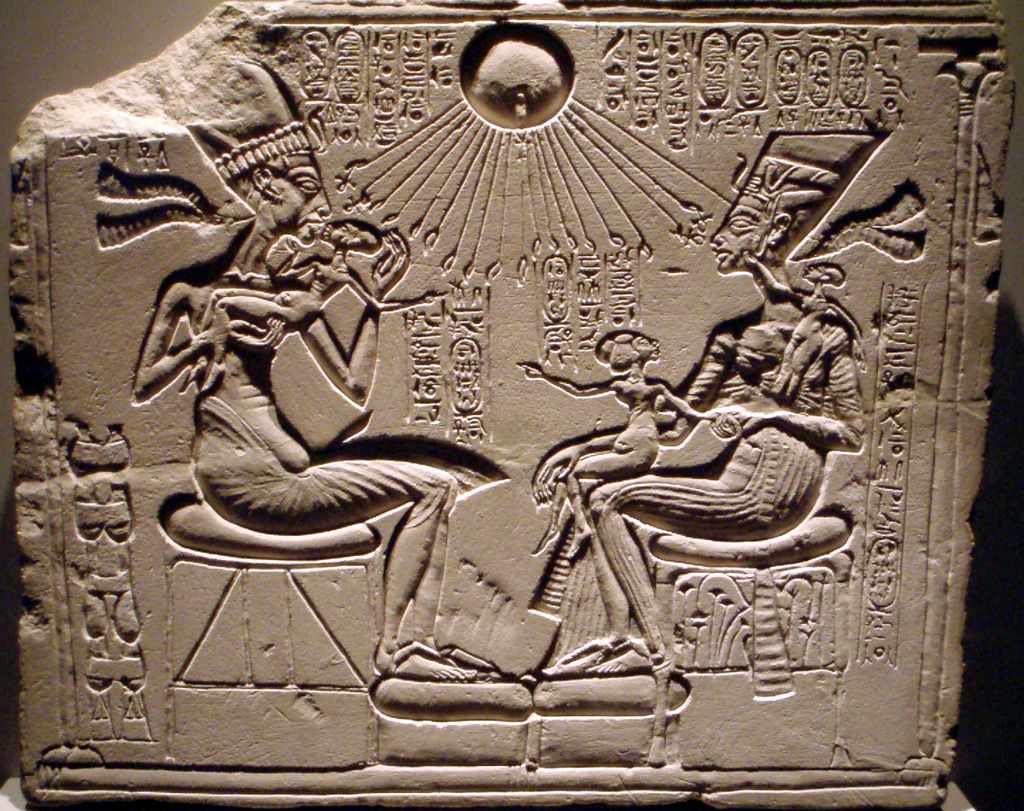 Sponsor your Favorite Page
Sponsor your Favorite Page SEARCH Search for: Search Follow UsJoin – The JOM Membership Program
Sponsor a Masterpiece with YOUR NAME CHOICE for $5
Share this:
- Tweet
